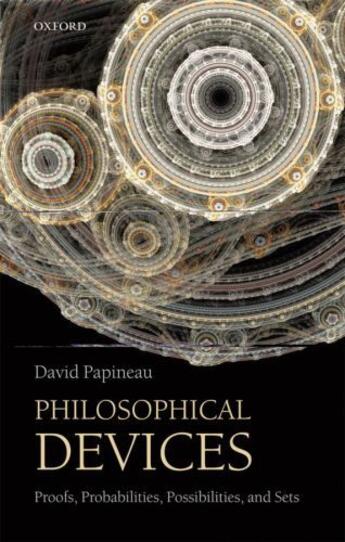-
Nombre de pages : (-)
-
Collection :
(-)
-
Genre :
(-)
-
Thème :
Non attribué
-
Prix littéraire(s) :
(-)
Résumé:
This book is designed to explain the technical ideas that are taken for granted in much contemporary philosophical writing. Notions like 'denumerability', 'modal scope distinction', 'Bayesian conditionalization', and 'logical completeness' are usually only elucidated deep within difficult... Voir plus
This book is designed to explain the technical ideas that are taken for granted in much contemporary philosophical writing. Notions like 'denumerability', 'modal scope distinction', 'Bayesian conditionalization', and 'logical completeness' are usually only elucidated deep within difficult specialist texts. By offering simple explanations that by-pass much irrelevant and boring detail, Philosophical Devices is able to cover a wealth of material that is normally only available to specialists.
The book contains four sections, each of three chapters. The first section is about sets and numbers, starting with the membership relation and ending with the generalized continuum hypothesis. The second is about analyticity, a prioricity, and necessity. The third is about probability, outlining the difference between objective and subjective probability and exploring aspects of conditionalization and correlation. The fourth deals with metalogic, focusing on the contrast between syntax and semantics, and finishing with a sketch of Gödel's theorem.
Philosophical Devices will be useful for university students who have got past the foothills of philosophy and are starting to read more widely, but it does not assume any prior expertise. All the issues discussed are intrinsically interesting, and often downright fascinating. It can be read with pleasure and profit by anybody who is curious about the technical infrastructure of contemporary philosophy.
Donner votre avis















